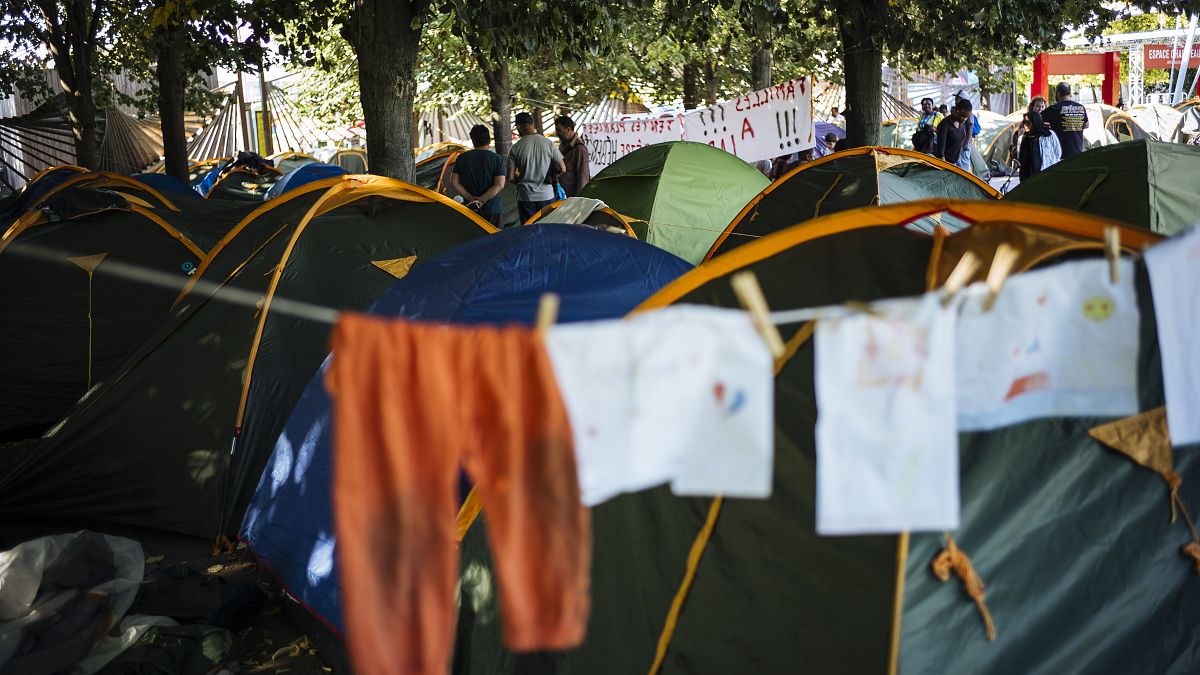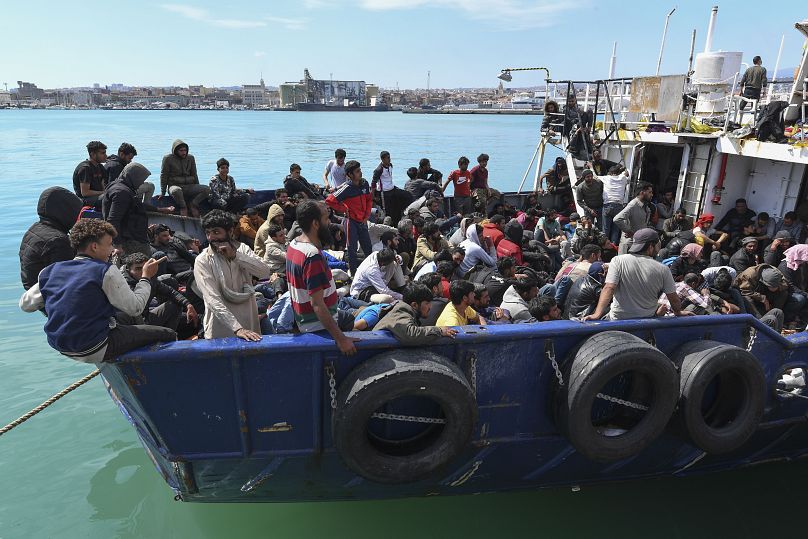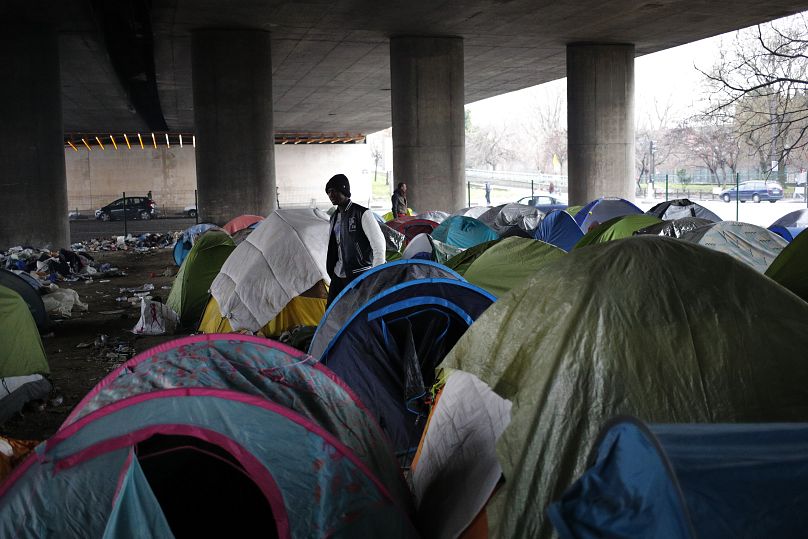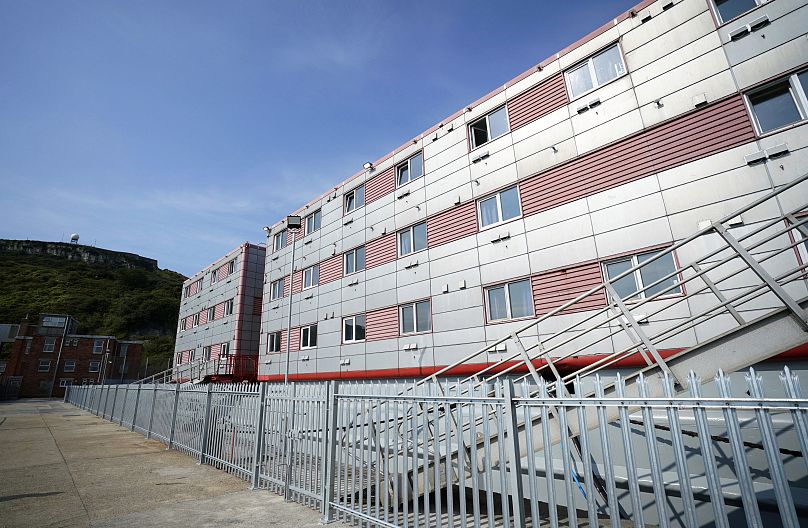In May, the French government introduced a new plan to move migrants out of Paris. The idea has garnered both praise and criticism. The question is what's happening in practice.
In the 10th arrondissement of Marseille, down a tree-lined alleyway that runs adjacent to a park, Yonatan—a Eritrean asylum seeker—sits at a white plastic table in the office of an apartment complex. He would call one of these buildings home for three weeks before being moved somewhere else. To where, he’s not sure—no one is, yet.
In May, the French government introduced a new plan to move migrants from Paris to other cities around the country. Yonatan voluntarily became part of this plan. This is one of the ten housing complexes that are used in the interim between the capital and the more long-term residential solutions.
The initiative has garnered both praise and criticism. Dispersing applications from the over-concentrated capital should free up processing times, potentially making it faster for asylum seekers and refugees to secure an official status. Cost of living also tends to be cheaper in cities outside of Paris. But some argue that the Interior Ministry’s initiative is political, and motivated by good optics ahead of the Olympics.
How this will play out in the long term is uncertain.
"Good migration policy and good integration approaches exist,” Nasar Meer, Professor of Sociology at the University of Glasgow said. “But they’re not politically rewarding for people who want to show that they’re tough on immigrants… it requires a certain maturity and a willingness to pursue good governance… and sadly, looking across Europe at the moment, that seems quite absent.”
'Stalingrad is common... it's famous'
Yonatan’s journey to France began in Sudan, where he was the owner of a barbershop in Khartoum.
“It was only €2,500 for me to open one shop… four chairs… it was good,” he said.
When the country broke out into civil war, he paid €2,000 to cross the border into Libya, leaving the business behind. From there, he paid a smuggler another €2,000 to cross the Mediterranean.
“There were too many people on the boat,” he said, hands folded lightly on his lap, not breaking eye contact. “Many people died… some of them, you see it.”
Yonatan considers himself lucky that the crossing only took six days.
“We were lucky… the weather was good when I crossed,” he said. “There were 80 people, one child.”
Yonatan traveled from Italy to Nice and Marseille and then made his way north to eventually reach the makeshift migrant camp under the Stalingrad metro station in Paris.
“Stalingrad is common,” Yonaton said with a shrug. “It’s famous.”
One of the most visible examples of the housing crisis facing migrants in Paris
Stalingrad has become one of the most visible examples of the housing crisis facing migrants in Paris. Hundreds of people live in tents awaiting residency papers and the right to live and work.
Since May, buses have been coming to bring people out of the camp and into other parts of France as part of the new plan.
After arriving in the destination city, a three-week housing and evaluation period determines where they'll be sent next, ideally a longer-term accommodation solution somewhere in that same region. The goal is to spread out some of the administrative work to regions that have a higher capacity to process it.
“People arrive by bus every three weeks… sometimes 40, 25.. it depends on the [number of] people that are ready to come, because one of the preambles and conditions that we established for this project is that people come here voluntarily,” Nicolas Hue, one of the programme’s regional directors, told Euronews. “They’re not put into buses and taken away.”
Yonatan decided to get on a bus to Marseille.
'There are reasons why people go to Paris rather than Marseille'
“I’m happy to be here… Marseille is good, the weather and everything,” Yonatan said. He nods slowly, with a slight smile. He had been in this complex for two out of the three weeks so far. “The house is also good.”
In the mornings he takes a bus to Castellane to buy groceries. Yonatan says the programme has given him five euros worth of meal tickets per day.
In the afternoons, he walks.
“I walk the city… sometimes I start walking from here to the Gare Saint-Charles,” he said. “That’s why I like Marseille, because I see everything... I see people swimming, enjoying life… It’s good… I do only this.”
He would prefer to be working, he says, but can't without paperwork.
If all goes according to plan, Yonatan will be moved into a regional centre at the end of the three weeks. But when asked where he'd be going, he replied that he'd return to the camp in Stalingrad, since there was a problem with his fingerprints.
Hue and Souiouf Abdou, the associate director of the temporary regional housing shelters (SAS), quickly jumped in when they heard this, insisting that there would be an exception since this was an administrative issue, and assured Yonatan that he had nothing to worry about.
Yonatan said 'ok.' But a couple minutes later, he said he might go back to Paris eventually to get a suitcase he left behind. Programme participants are not obligated to follow it all the way through—Yonatan can go whenever he wants.
“There are reasons why people go to Paris rather than Marseille… they may have family there, they may have friends there, they may have prior connections to that place,” Meer told Euronews. “Moving people away from prior connections who can help… I don’t see how that can’t be anything but re-traumatising.”
Now, the three weeks have passed. When reached for comment, Hue did not disclose where Yonatan is now, citing confidentiality issues.
'People who are free, who are coming to seek asylum for a better life, effectively end up locked up'
Relocating asylum seekers and refugees is not uncommon throughout the continent.
“The UK, for a long time, has had a ‘dispersal strategy,’” Meer said. “By ‘dispersal,’ they mean moving people who arrive in the southeast—London and the surrounding areas—and shuttling them around the country.”
“None of that is very good for the people who are seeking asylum... what happens is that they get locked in this awful bureaucracy… they get stuck in these processing centres which are slow and inefficient, but these places are often like prisons… so people who are free, who are coming to seek asylum for a better life, effectively end up locked up.”
But there are other examples where this has been a success.
“In Italy, for a long time, there was a very local approach in the region of Calabria where cities… got together and accommodated people in places that were historically underpopulated, or had been depopulated because people had moved to the north of Italy for economic reasons,” Meer said. “It became a place of real resettlement.”
'House, food, papers, work… that is my dream now'
Time will tell whether this will be successful in France.
“A house and a home are not the same thing… people form meaningful homes in communities with a shared experience or history of surviving migration and trauma together,” Meer said. “That might well be the most important and valuable thing they can do, which is to keep people that can share their experiences of survival… in sufficient proximity to be able to heal.”
Yonatan aspires to work in a barbershop eventually, but has stopped hoping for anything beyond basic necessities.
“Before, when I was young, maybe I had dreams and hope…now it doesn’t exist for me,” he said. “House, food, papers, work… that is my dream now.”
The text on Yonatan's t-shirt reads NEVER ENDING HAPPINESS.



